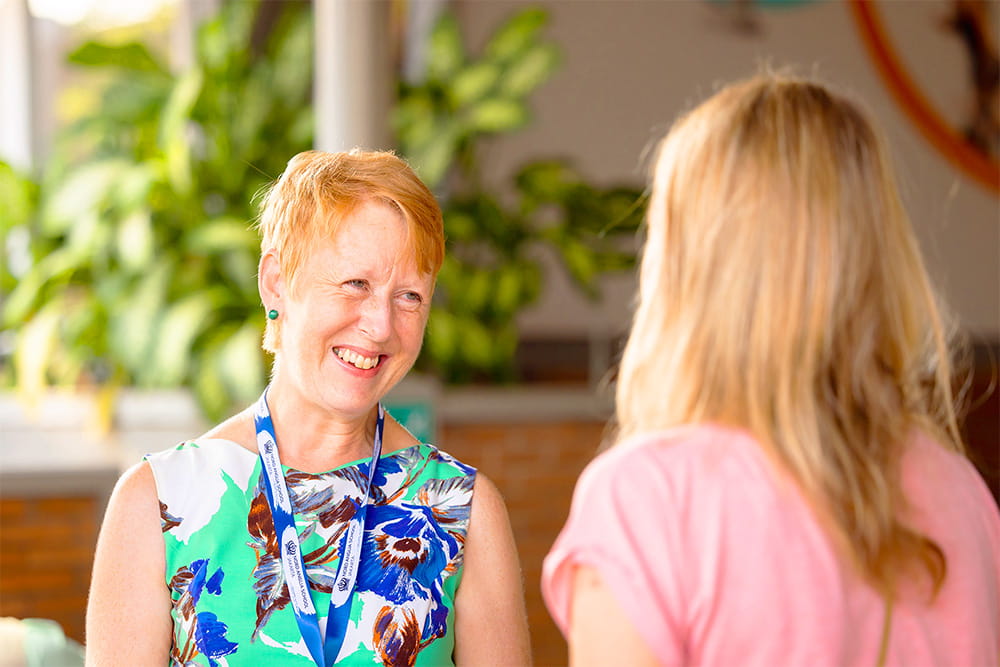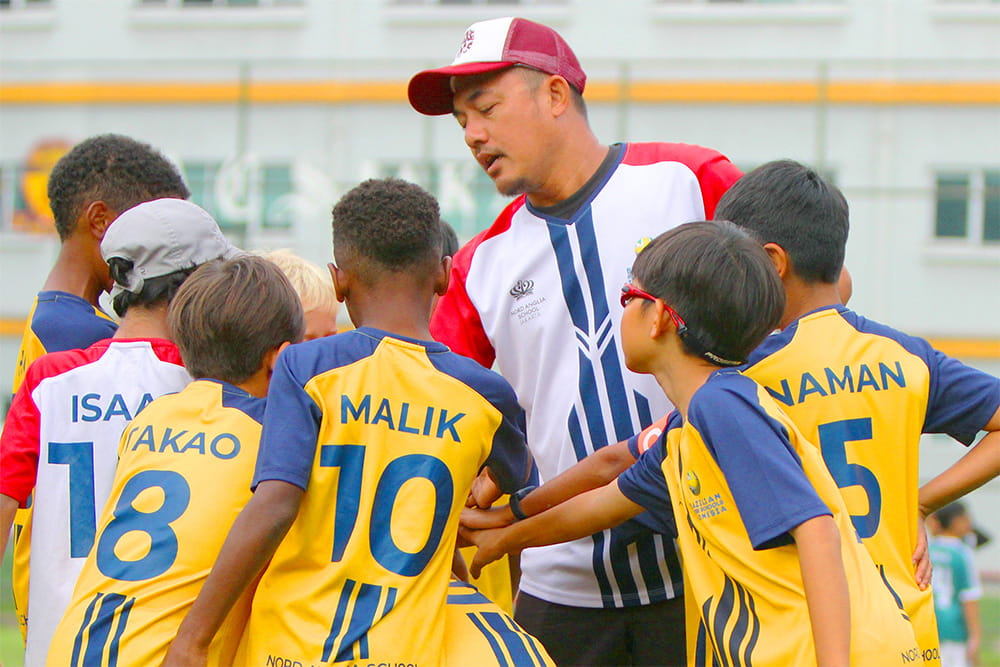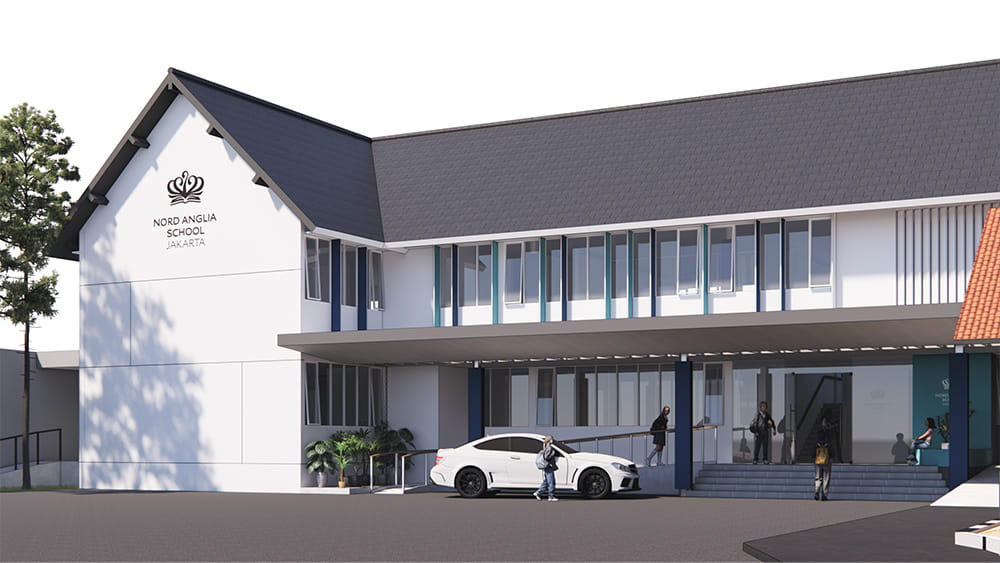Child Ownership in Learning
One of the key components of holistic early years education is fostering child ownership in the learning process. Research consistently highlights the positive impact of student autonomy on academic achievement and overall well-being. According to a study published in the Journal of Educational Psychology (2017), students who feel a sense of ownership over their learning are more likely to be motivated, engaged and persistent in their academic pursuits.
At NAS, educators are dedicated to creating an environment where children are active participants in their learning journey. This approach not only enhances academic outcomes at our school but also cultivates essential life skills such as critical thinking, problem-solving and decision-making from an early age.
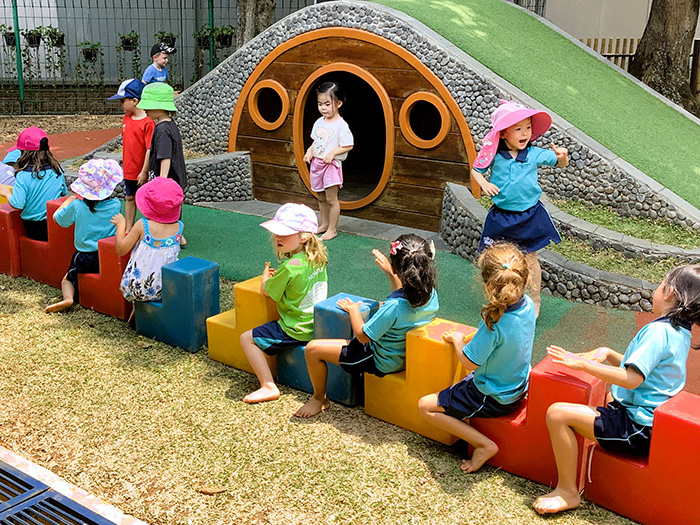
Outdoor Exploration
The value of outdoor exploration in early childhood development cannot be overstated. Numerous studies, including research published in the Journal of Environmental Psychology (2016), have demonstrated that time spent in nature has a positive impact on cognitive development, creativity and emotional well-being in young children.
NAS recognises the significance of outdoor experiences and integrates these into their early years curriculum. Outdoor learning environments at NAS provide children with opportunities to explore, investigate and connect with the natural world. These experiences not only contribute to physical development but also foster a love and respect for the environment, instilling a sense of responsibility for its preservation.
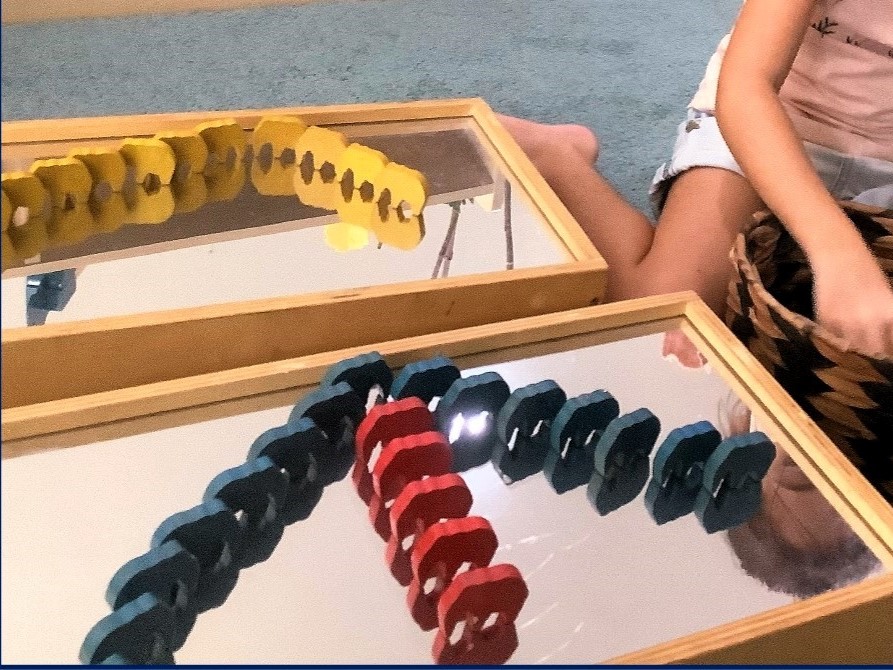
Authentic Self-Driven Learning Opportunities
Progressive early years education goes beyond traditional classroom settings by incorporating authentic self-driven learning opportunities for students. Research in the Journal of Applied School Psychology (2018) highlights the benefits of self-directed learning, emphasising that it promotes intrinsic motivation and a lifelong love of learning.
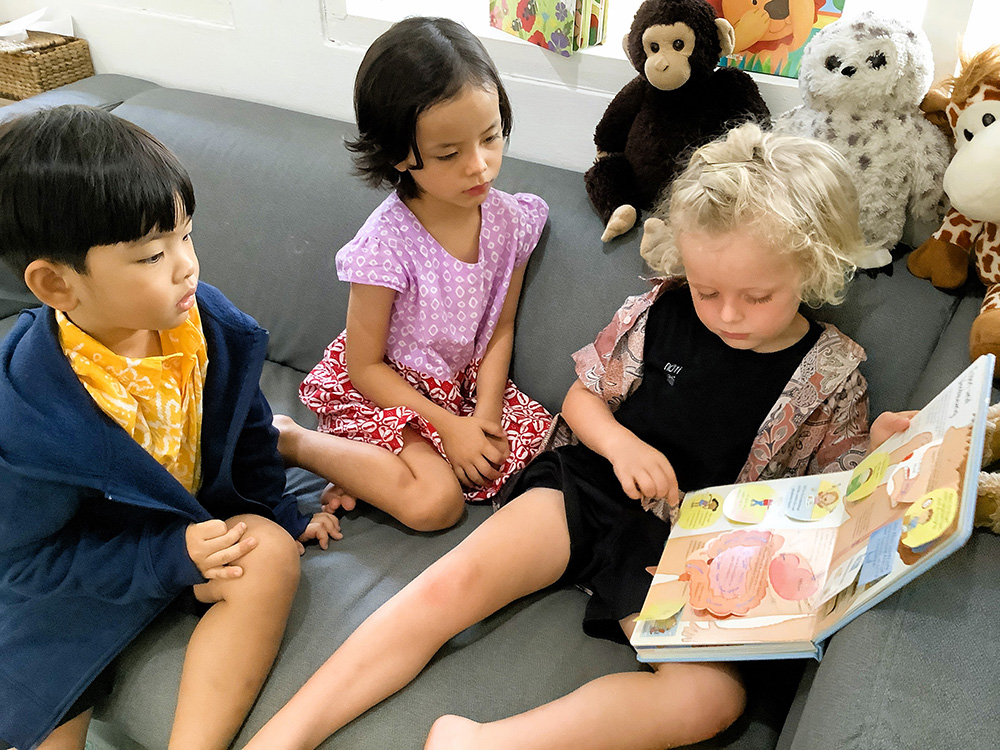
In the NAS early years, educators create an atmosphere where children are encouraged to pursue their interests and take ownership of their learning. Whether it's a science experiment, an art project, or delving into a topic of interest, students are given the freedom to explore, inquire and discover knowledge in a way that resonates with their individual learning styles.
Play: The Foundation of Early Learning
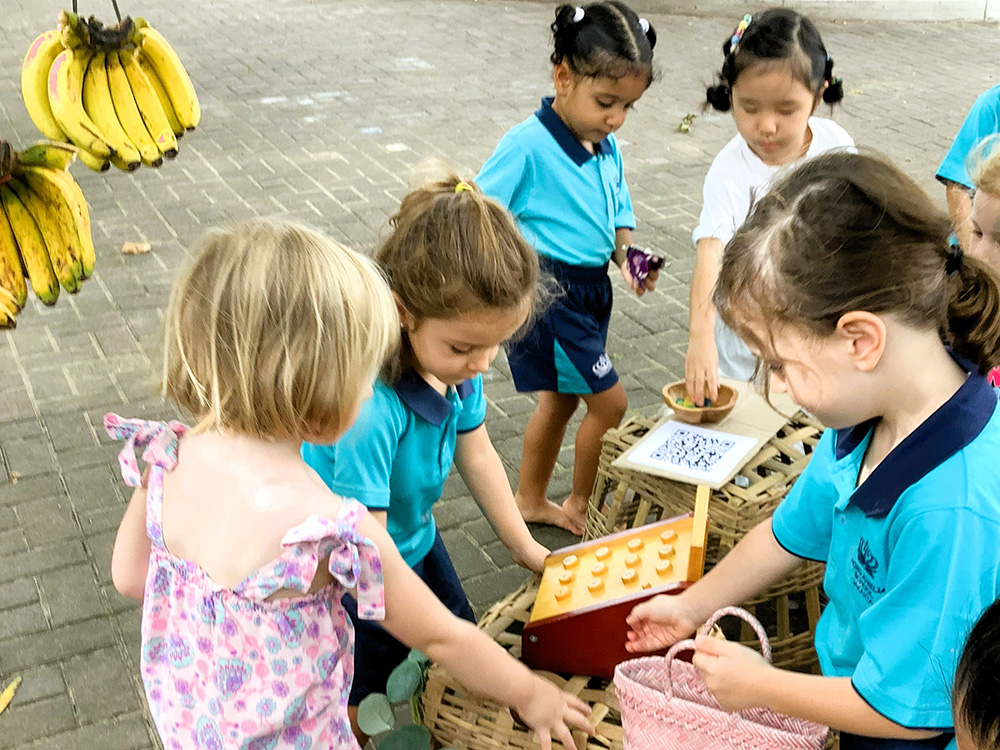
Play is the language of childhood, and it serves as a crucial foundation for early learning. The American Academy of Pediatrics (2018) emphasises the importance of play in promoting social-emotional, cognitive, and physical development in young children, advocating for children to be offered regular, uninterrupted times for authentic play.
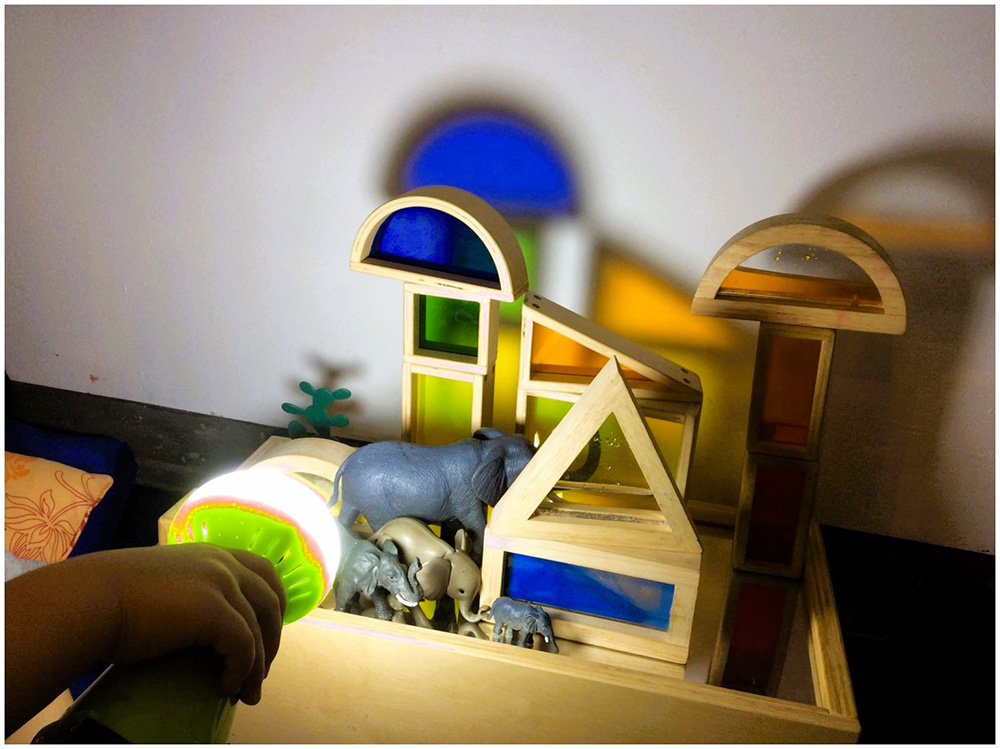
Our early years at NAS recognises play as an integral part of the learning process. Through purposeful play experiences, children develop essential skills such as creativity, problem-solving, and collaboration. Our school's commitment to play-based learning aligns with current research findings that underscore the role of play in building a strong academic and social foundation.
Reggio Emilia Philosophy: A Framework for Holistic Development
Central to NAS's holistic approach is how we incorporate the Reggio Emilia philosophy into our practice. Originating in the town of Reggio Emilia, Italy, this educational approach places a strong emphasis on the child as an active participant in their learning journey. A meta-analysis published in the Journal of Research in Childhood Education (2016) found that schools implementing the Reggio Emilia approach to learning demonstrate positive outcomes in children's cognitive and social development.
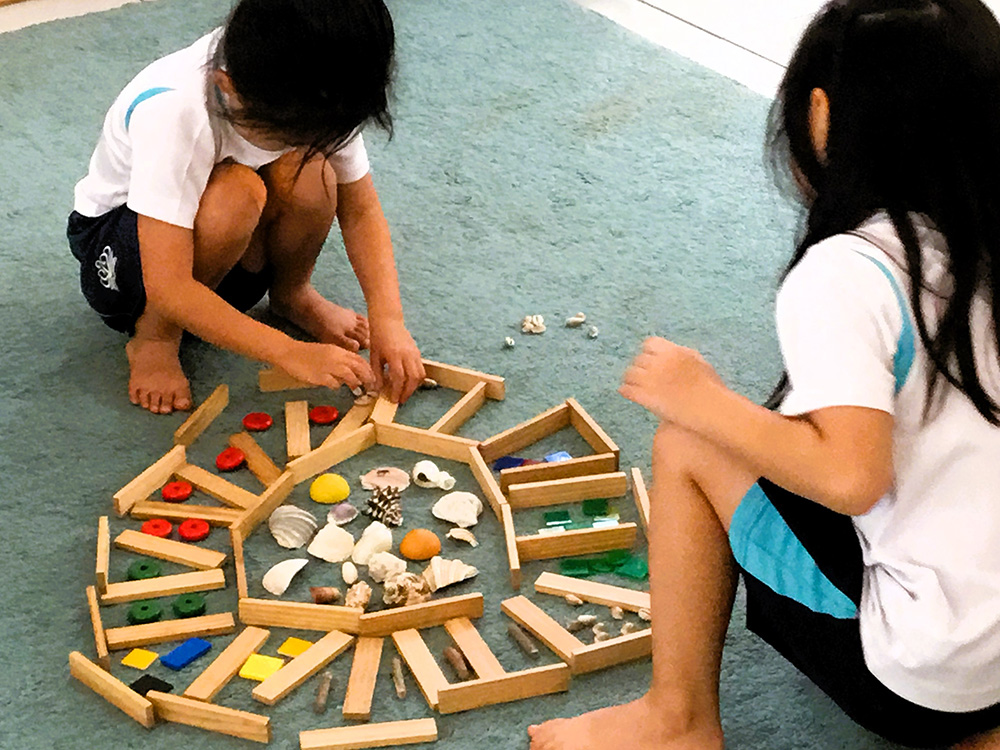
The Reggio Emilia philosophy at NAS involves creating a learning environment that is child-centered, engaging, calm, welcoming and focused on collaborative inquiry. Through projects and experiences driven by the children’s interests, the Reggio Emilia approach aligns seamlessly with NAS’s commitment to holistic early years education.
Conclusion
Nord Anglia School Jakarta's dedication to holistic early years education stands as a testament to its commitment to nurturing well-rounded individuals. By emphasising child ownership in learning, encouraging outdoor exploration, providing authentic self-driven learning opportunities, valuing play, and incorporating the Reggio Emilia philosophy, NAS creates an environment that goes beyond traditional education paradigms and towards a progressive model of learning.
As parents, it is essential to recognise the profound impact of these practices on our children's development. The evidence-based research supports the idea that holistic early years education sets the stage for a lifetime of learning, creativity and wellbeing. By choosing NAS, you are not just enrolling your children in a vibrant and successful educational institution; you are investing in their future as confident, curious, and capable individuals.
References:
Johnson, D. W., Johnson, R. T., & Scott, L. A. (2017). Cooperative learning and achievement: Theory and research. Journal of Educational Psychology, 109(2), 143–152.
Wells, N. M., & Evans, G. W. (2016). Nearby nature: A buffer of life stress among rural children. Journal of Environmental Psychology, 45, 128–134.
Domitrovich, C. E., & Bierman, K. L. (2018). Integrating evidence-based models of prevention and promotion: The penn resiliency program and the responsive classroom approach. Journal of Applied School Psychology, 34(1), 13–28.
American Academy of Pediatrics. (2018). The power of play: A pediatric role in enhancing development in young children. Pediatrics, 142(3), e20182058.
Grom, G. (2016). The Reggio Emilia approach to early childhood education: A critical review. Journal of Research in Childhood Education, 30(2), 269–285.










